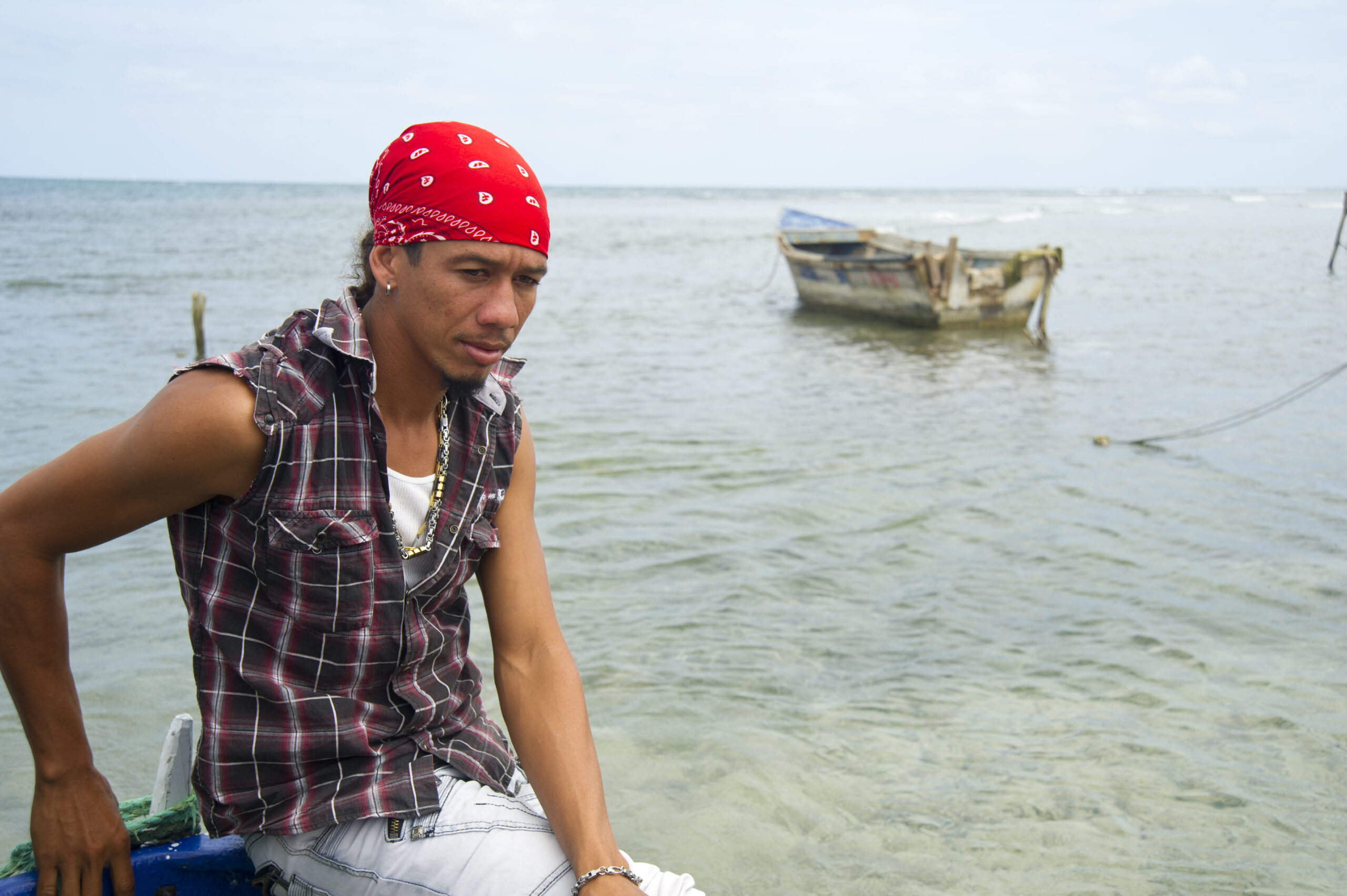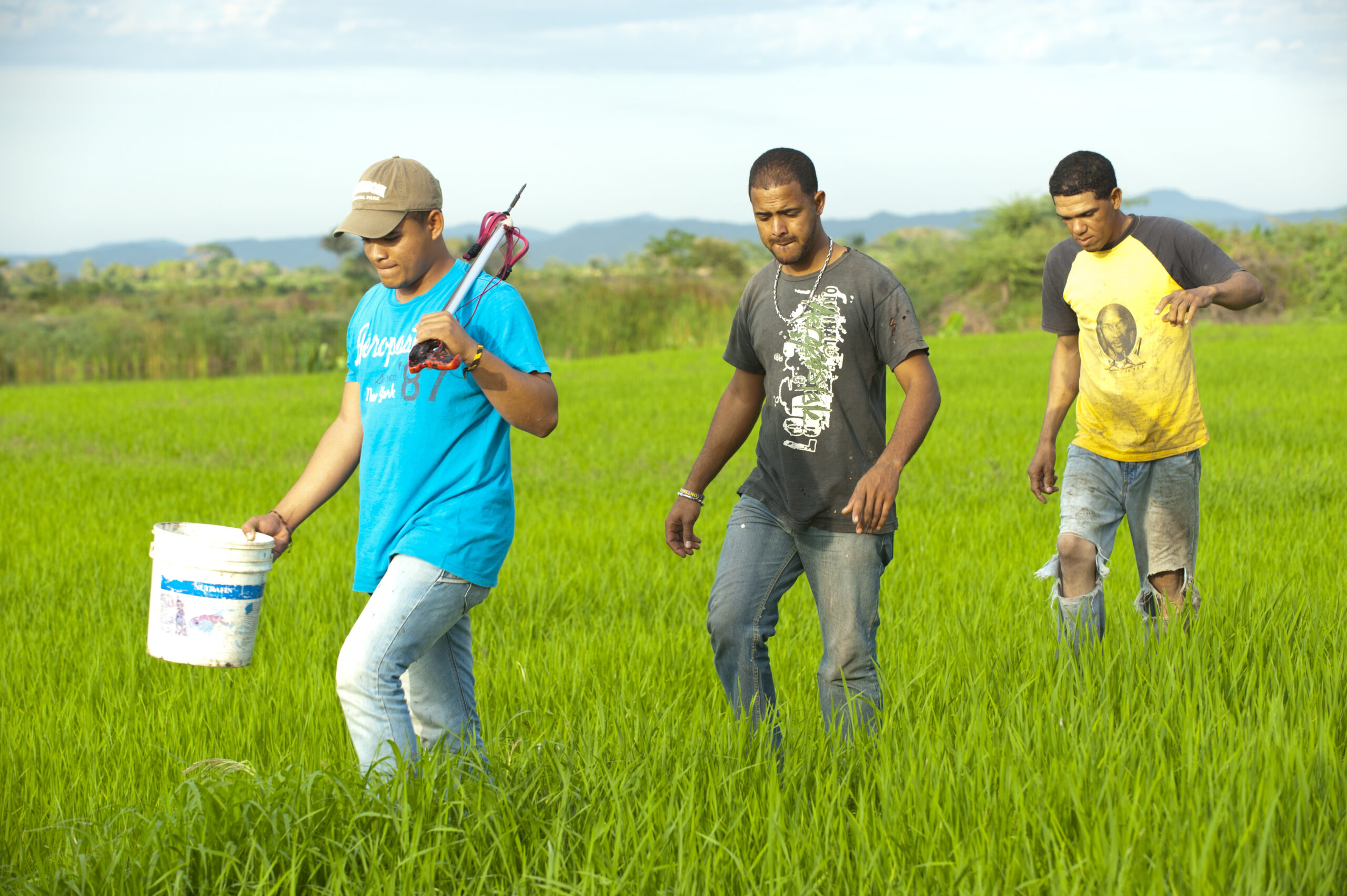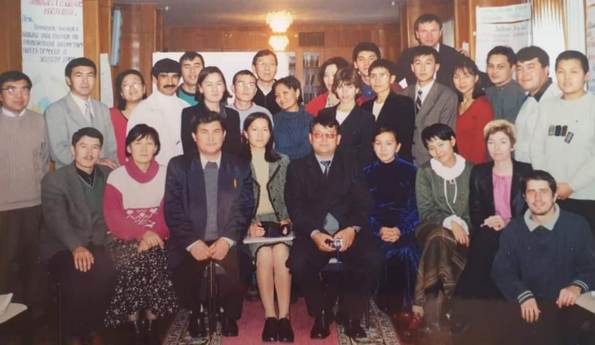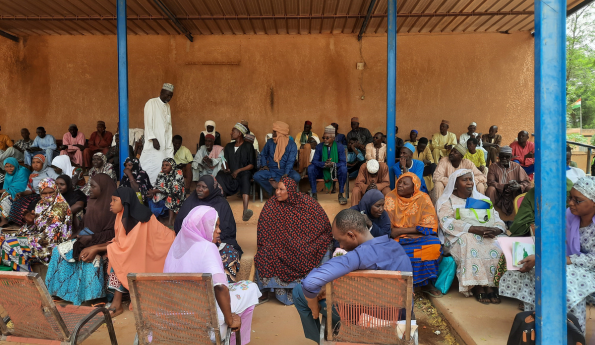AgroFrontera, a local nonprofit in the Dominican Republic has organized fishermen into association groups that understand their role in environmental stewardship and are committed to fishing responsibly. © Counterpart International.
Watch the video here.
With its motor cut off, the fishing boat rocks back and forth with the steel-blue waves of the Atlantic. Not far from the shores of the Dominican Republic’s Montecristi National Park, the water here is still slightly turbid. The bright limbs of the legging-clad fishermen are only visible for a moment after they pitch gracefully overboard in pursuit of a prey that until recently, most of them doggedly avoided.
Frederick Payton is the Executive Director of AgroFrontera, a nonprofit organization based in Montecristi which, in partnership with Counterpart International, works with communities to sustainably develop their food and farming systems.
His sun-filled job description might sound like a dream to other, suit-bound executives: Payton spends a lot of time with rice growers and fishermen in the lush paddies and beaches of a country that is recognized by most as a travel destination.
But the full scope of his work with AgroFrontera is no vacation. Payton and his staff are trying to turn around farming and fishing practices that have had grave environmental impacts on Montecristi, while simultaneously creating value chains that will improve people’s livelihoods enough to make conservation worth their efforts.
Striving To Fish Responsibly
The invasive lionfish is the target of one such environmental and economic venture. Its vivid brown and white stripes and brilliantly dotted diaphanous fins are crowned with poisonous spindles that, until now, kept fishermen away.
That meant it had ample time to ravenously devour other juvenile fish species while reproducing prolifically. With no natural enemies in the Caribbean, lionfish pose a real threat to the survival of coral reefs and fisheries.
AgroFrontera recognized the dual benefit to fishermen and the ecosystem of catching more lionfish. And Payton knew any project that helped one but not the other would be unsustainable.
“Any program, any technology that you bring to these coastal communities with low-income fishermen and their families has to be based in an opportunity in a market,” he says.
The organization is working with restaurants, hotels and supermarkets in Montecristi to start selling the fish, which he says has a nice subtle flavor and is easy to fillet. It educates fishermen on maintaining a cold chain to make it more valuable as they take the beautiful carnivore from ocean to entrée.
And it has organized fishermen into associations—groups that understand their role in environmental stewardship and are committed to fishing responsibly.

Ariel Polanco is a fisherman and President of the Buen Hombre Association. Ariel and the other members of his group have joined to conserve and protect marine species. © Counterpart International.
Fishermen here have been over-fishing in the past. Around sixty percent of people in communities like Buen Hombre depend directly on fishing for a living, and destructive methods were used to maximize their catch, without concern for the overall health of the fisheries.
Some fishermen used water snares and gill nets that caught hundreds of young fish. They even poured poison in the mangroves and inland waterways, waiting for the dead fish to float up.
“We carried out a biological study two years ago in Manzanillo and the results were surprising,” says AgroFrontera employee Cesar Rafael Garcia. “No species were seen in the area.”
AgroFrontera taught the fisherman about more responsible methods, and worked with them to divide their fishing area into zones they could manage and protect. They provided equipment like fish aggregating devices that allow for line fishing of bigger, more valuable species like tuna and red snapper whose catch doesn’t damage the reef.
The Buen Hombre fishing association has twenty members, the one in Manzanillo, fifty.
“Our goal is, mainly, to protect and purchase equipment so that our members can fish with greater ease, and increase their catch, but they must always respect Mother Nature,” says Manzanillo association president Rogel Antonio Rivera Cabrera.
“After we started to fight against illegal fishing, the increase of fish species was remarkable,” Cabrera says. “I came here with my son, carrying a flashlight and—this is unbelievable, my friend—we caught around 100 pounds of fish. Their size was the right one for fishing.”
With results like this, even accounting for a bit of fisherman’s exaggeration, association members are optimistic that others in their community will get on board.
“I think they’re starting to see the economic benefit in… [fishing] in a more sustainable manner,” says Jesse McCarter, a Peace Corps volunteer who lives and works in Buen Hombre. “By providing a better catch for them and better means to catch high-quality fish, it’s helping them kind of create their own power within the community.”

AgroFrontera is educating farmers on concepts of water and pest management that reduce waste and chemicals. © Counterpart International.
Teaming up for Lasting Change
Creating community associations with the power to make positive changes for members and the environment was a tactic that worked just as well on land. Concerned with the whole watershed of Montecristi, Payton and his staff also work with the area farmers whose methods affect what ends up in the mangroves and bay.
They presented concepts of water and pest management that reduce waste and chemicals, and suggested alternatives to rinsing and disposing of pesticide containers in waterways. Farmers who work with AgroFrontera are using less than half the chemical products of those who are not affiliated with the program.
They also educated farmers about how to determine which type of fertilizer their soil needs, how much to apply and when. They also introduced a System of Rice Intensification (SRI), which allows farmers to use new varieties and spacing techniques that can result in a higher yield and better quality.
“For the past crop cycle, we have lowered production costs by 1,200 pesos per tarea (628 square meters),” says AgroFrontera agronomist Leoncio Pimentel. “Those 1,200 pesos per tarea correspond to direct savings for the farmer. This is the reason why they accept the methods of Agrofrontera.”
The economic gain is clear to farmers. But the environmental benefit of these new methods is becoming just as obvious. For the first time in years, residents in the communities near Montecristi are seeing the return of fish and crabs to lakes and streams that were once toxic.
“I was surprised on a plot of mine, as I was walking beside a pipe,” says rice farmer Ramón Antonio Román. “I saw the other day that some fish came out. I was amazed and I was surprised, because we didn’t use to see fish. Now the fish do come.”
Juan Alexander Rivas Rosario fishes for fun at Lake Utakata, a quiet, reedy lagoon that sits at the center of the micro-basin’s natural drainage systems.
Contamination had resulted in what Pimentel describes as the “total mortality” of its marine life despite the reliance of surrounding communities on the fish that used to populate it.
“We had stopped coming here for a while because there were no fish in the lakes due to contamination from products,” says Rivas. Now, things are different. “We can catch a lot of fish, compared to before.”
“We used to come here and leave with an empty bucket, without any fish. Now,” he says, holding out a bucket full of his fresh shiny catch, “you can see the results .”




